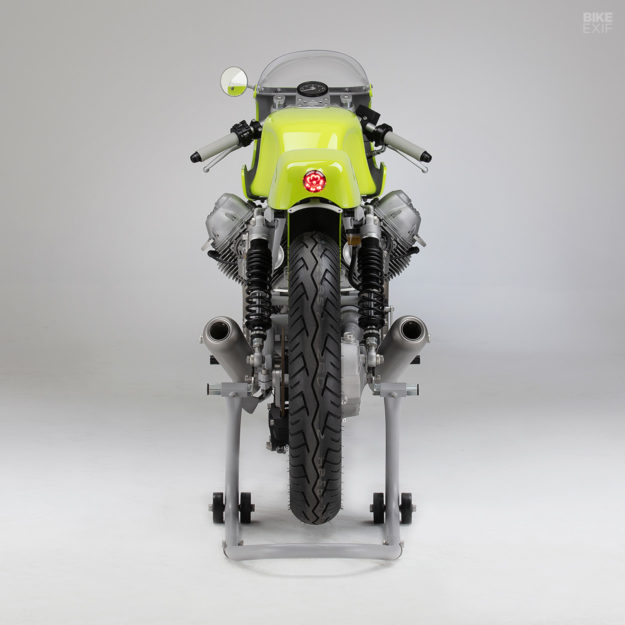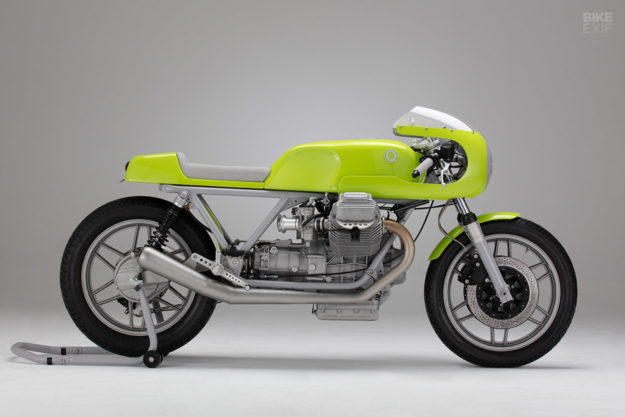
Kaffeemaschine is one of the big success stories in the European custom world. Founder Axel Budde specializes in high-end Moto Guzzi cafe racers, with modern updates and immaculate build quality.
Axel sticks to what he knows, and doesn’t reinvent the wheel with every build. As his reputation has grown, so has the Kaffeemaschine business: he’s hired two staff to help him, moved to a bigger workshop, and one of his clients is now a business partner.
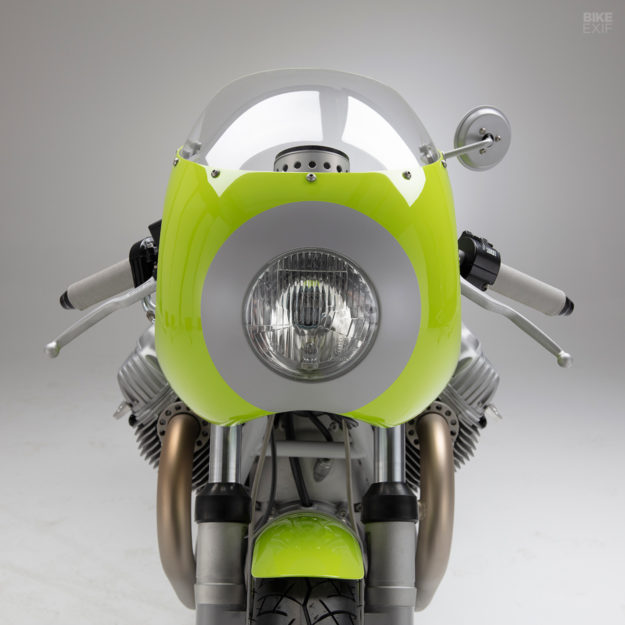
“KM23 is the first bike built by the new team, and not just by myself,” Axel tells us.
It’s based on a 1984 850 Le Mans Mark III, which means the air-cooled V-twin was upgraded with tighter machining tolerances, different cylinder heads, a new intake system, and squared-off cooling fins on the barrels.
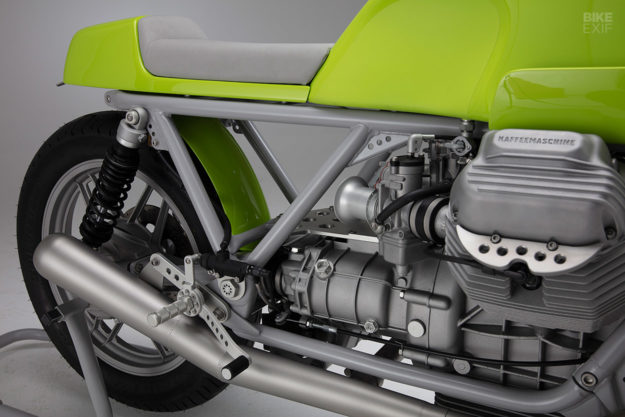
The man who commissioned ‘KM23’ is one of Europe’s top automotive historians. “He was the head of the Historic Archive of Porsche,” Axel reveals.
“Then he moved to VW, but still wanted to use the red-and-white color scheme of the Porsche 917 that won Le Mans in 1970. That was number 23 too.”
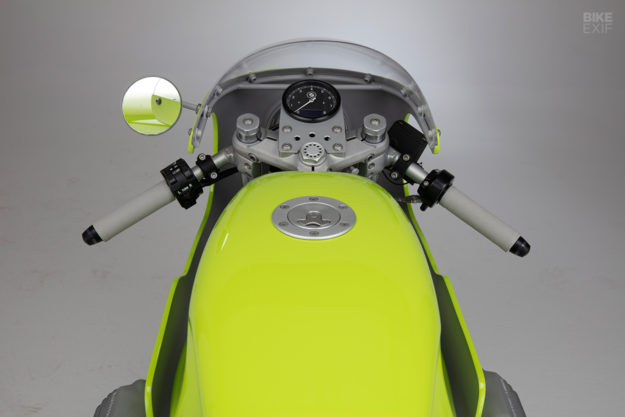
But when Axel started work, he soon hit a stumbling block. He realized it would be hard to design a ‘pretty’ motorcycle that resembles the Porsche 917. So he suggested dropping the 917 theme, and creating a Le Mans with a different but aggressive color scheme.
The hard parts and frame would be monochrome: grey, silver and black. “The client was happy with the new proposal and gave me his OK.”
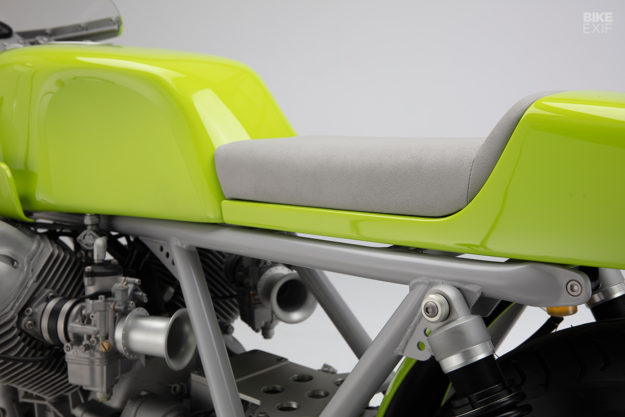
The Kaffeemaschine crew stripped the Le Mans down to its component parts, tearing apart even the engine, gearbox and rear drive. Then they overhauled and rebuilt the motor with a capacity boost to 1000 cc, twin spark heads, and Kaffeemaschine’s proprietary new camshaft.
A lightened flywheel and Dell’Orto PHF carburetors complete the performance package, and the elegant exhaust is one of Kaffeemaschine’s own in-house parts.
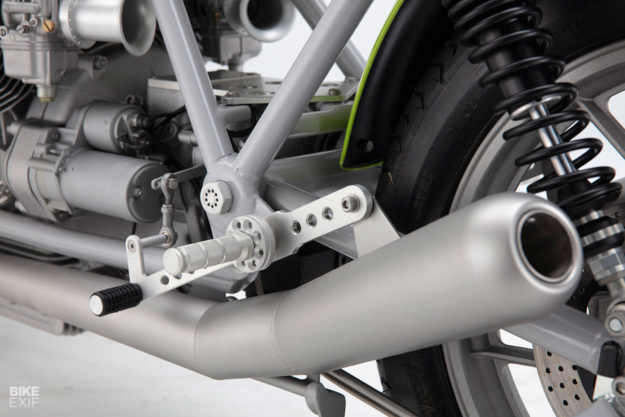
“Performance should be 85 to 90hp,” says Axel, “moving a dry weight of only 170 kg [375 pounds]. The rear drive and transmission got a revision, too.” This gives the Le Mans a power-to-weight ratio similar to the Ducati Monster 796.
Rather than mess with the old school look of the Le Mans, Kaffeemaschine have kept the fork outers and replaced the internals with uprated springs and dampers from FAC. The new shock absorbers are custom-made Wilbers units.
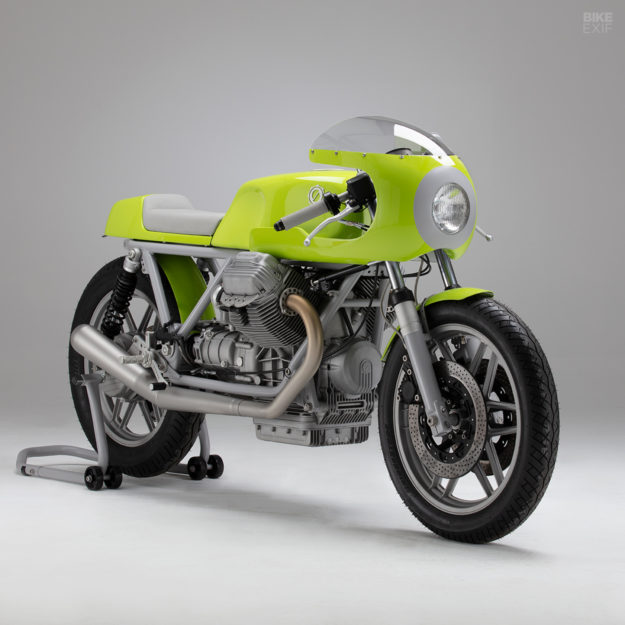
Braking is via a new Brembo system, using modern cylinders and stainless lines. The restored 18-inch alloy wheels are shod with Bridgestone’s highly rated Battlax BT45 tires.
Modern reliability comes from a new, custom-made wiring loom, electronic ignition, and a modern alternator and rectifier/regulator.
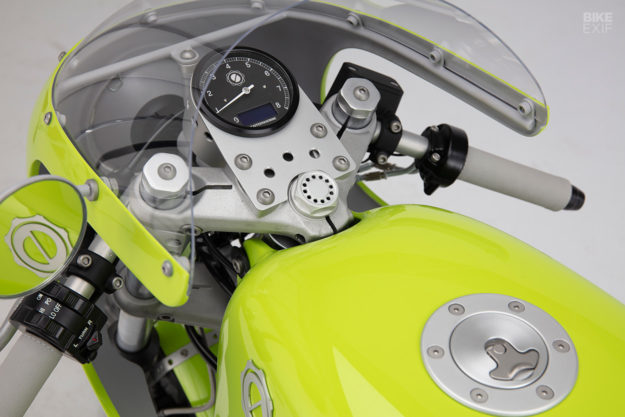
Motogadget supplied the Chronoclassic analog tacho (with custom dial face) and an ‘m.lock’ contact-free digital ignition lock with RFID technology.
There are new alloy components everywhere—all made in-house—and all existing parts have been refurbished. “Every screw was reduced on the mill and pearl blasted, and all alloy parts grinded and galvanized.”
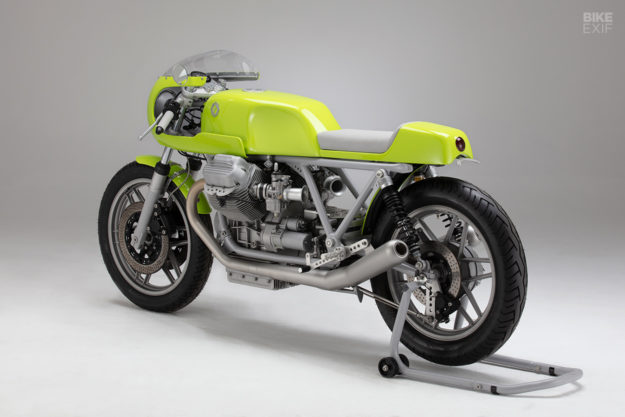
The biggest visual change is the new bodywork, though. It’s simple, beautifully crafted, and perfectly balanced, with a clean sloping line running from the base of the new fairing to the end of the tail unit.
“It’s made from Kevlar aramid fiber, to get the ultimate in lightness and strength,” says Axel. “The biggest issue was building the fairing.”
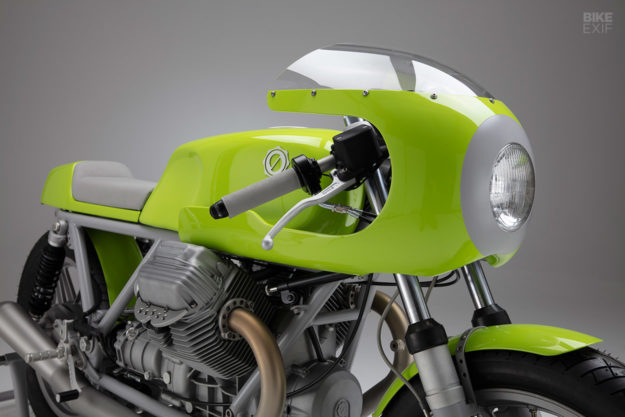
The paint is a vintage Lamborghini shade, and will be familiar to anyone who knows the iconic Miura lime green.
“It almost seems to glow in the dark,” says Axel. “But I was a little disappointed after taking the studio pictures—it’s one of those bikes that looks better ‘live’. Maybe it’s because of the grey frame in front of the grey background.”
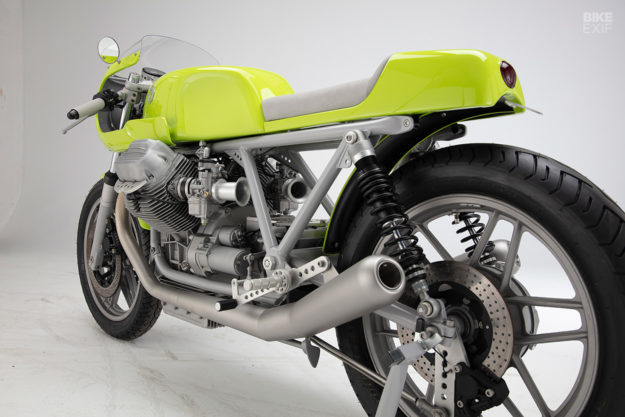
It sure looks good to us, though. And the riding experience, not surprisingly, is top-notch.
“I rode it several times and really fell in love with the look, performance and sound,” says Axel.
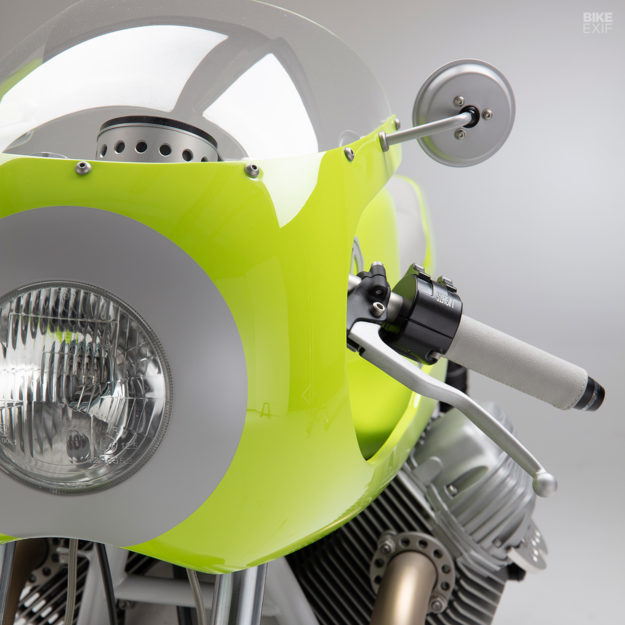
“It’s hard to let it go. But I know that ‘she’ will lead a happy life; the owner is a true gearhead and bike fanatic.”
Kaffeemaschine | Facebook | Instagram
